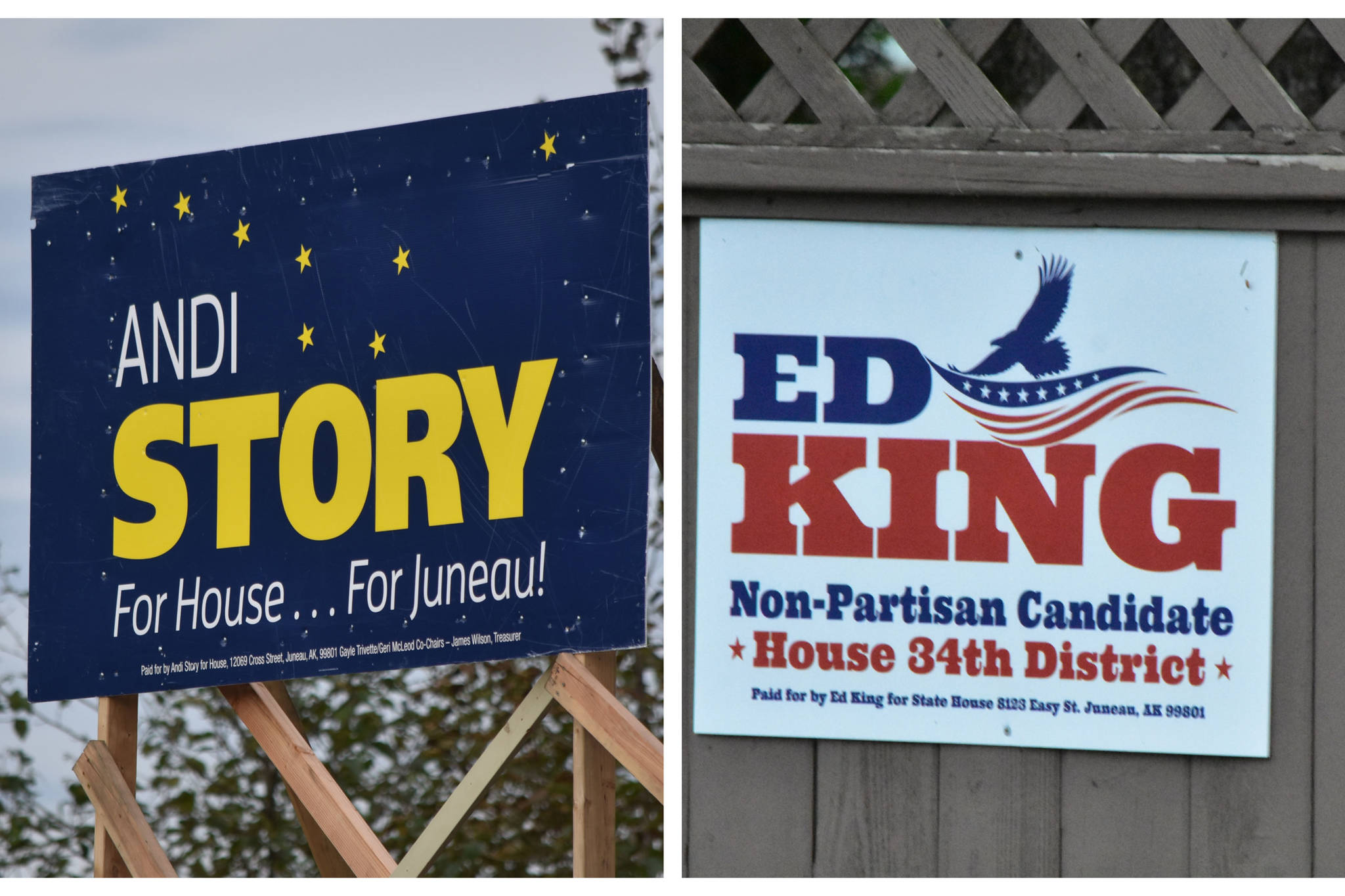Fundraising in the race for Alaska House District 34 between incumbent Andi Story, D-Juneau, and nonpartisan challenger Ed King is decidedly lopsided in favor of the incumbent, according to campaign finance records.
Campaign disclosure forms available from the Alaska Public Offices Commission show Story with a significant lead in funding over King. The latest available disclosure forms were submitted in early August show Story’s entire campaign fundraising total at $35,242 with $6,929 in expenses. King on the other hand shows a total of $4,504 funds raised and $1,582 spent.
Much of Story’s funding comes from backing she’s received from Democratic Party groups and labor unions. Story’s largest single donation for this campaign and in her 2018 race was $5,000 from Tongass Democrats, a local fundraising organization for Democrats in House Districts 33 and 34 and Senate District Q, all of which cover Juneau and the surrounding area.
Other large donors include political action committees for the International Brotherhood of Electrical Workers; the Alaska State Employee Association/Association of Federal, State, County and Municipal Employees Local 52; and the National Education Association Alaska, each which donated $1,000. Story has a number of individual donors as well, most of which are over $100.
“I appreciate getting donations,” Story said in an interview Wednesday. “Lots of the union donations are all about good working conditions, wages and benefits for all people. I like to think I know what’s important to people in the private as well as the private sector; quality of life, high cost of living, people’s concerns are all very similar here.”
The Alaska Democratic Party also provides a party apparatus including consulting, media support, communications, publicity, voter file access, training and use of facilities to support its candidates, but that has to be paid for.
According to disclosure documents, King’s campaign hasn’t received any donations over $500 save for the $773 payment King himself made to the campaign.
“It’s been very challenging,” King said of being a first-time fundraiser during a pandemic. “I haven’t received any money from any special interest groups, I’ve only received money from individual donors.”
Most of King’s donors have been contributions of over $100. Of the 18 donors reported on King’s campaign, only four have been under $100.
[City subsidy rallies child care enrollment]
Large donors to King’s campaign include Brad Keithley, a policy analyst and managing director of Alaskans for a Sustainable Budget and North Pole Republican Mel Gillis, who each donated $500. King also received $500 payments from Johnathan and Betsy Blattmachr, and $250 each from Matthew Blattmachr and Brandon Cintula. Those donors, with the exception of Betsy Blattmachr, are affiliated with wealth management firm Peak Trust Company, which has offices in Anchorage and Las Vegas. Two $250 donations were made to King’s campaign from Hyak Mining Co. President Neil MacKinnon.
King’s largest payment was $1,000 to Neve Studios in Washington state for advertising. Story’s largest expenditure have been the salary of her campaign manager Calvin Zuelow, who according to campaign documents has received two payments of $1,500. Story’s campaign has also made two $1,250 payments to the Alaska Democratic Party for campaign support. Most other expenditures for both campaigns were small payments of under $100 for advertising and processing fees.
King’s disclosure form submitted Aug. 8, contained an error, listing the amount raised during the latest filing period under the section for the amount raised for the entire campaign. Notified of the mistake King said he plans to fix it as soon as possible and the amounts disclosed were accurate.
It’s a common mistake, said Tom Lucas, campaign disclosure coordinator for APOC, and staff would be contacting the candidate to rectify the error. So long as there’s no attempt to “hide the ball,” Lucas said not much would likely come of the matter. However, he said, there is technically a violation and if a complaint were to be filed, an investigation would have to take place and a recommendation made to APOC. The maximum penalty for such a violation is $500 a day for every day an incorrect report remains on file, Lucas said, but there are also mitigating circumstances to be accounted for, including being a first-time filer.
“This type of thing happens,” he said.
• Contact reporter Peter Segall at psegall@juneauempire.com. Follow him on Twitter at @SegallJnuEmpire.

